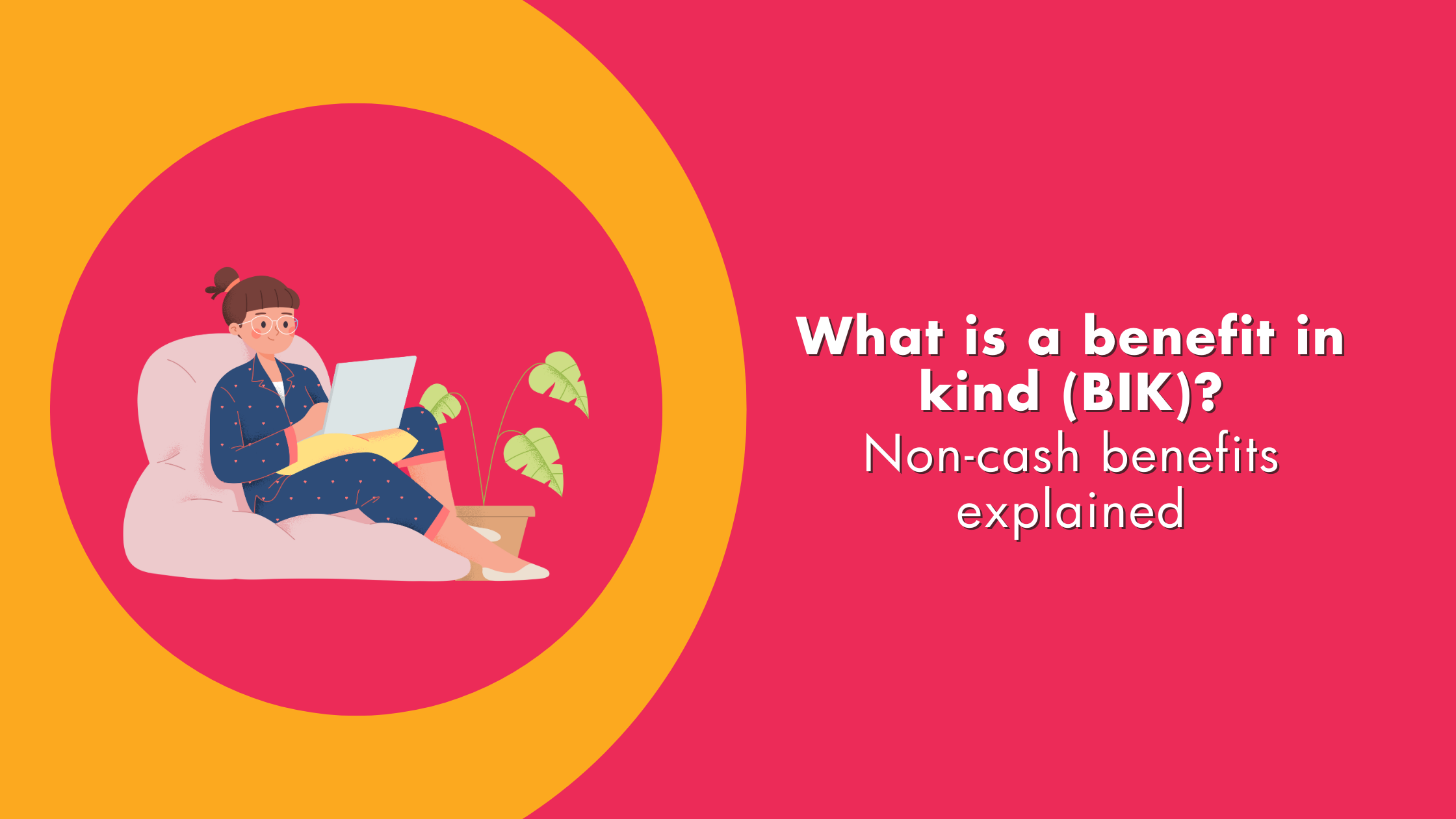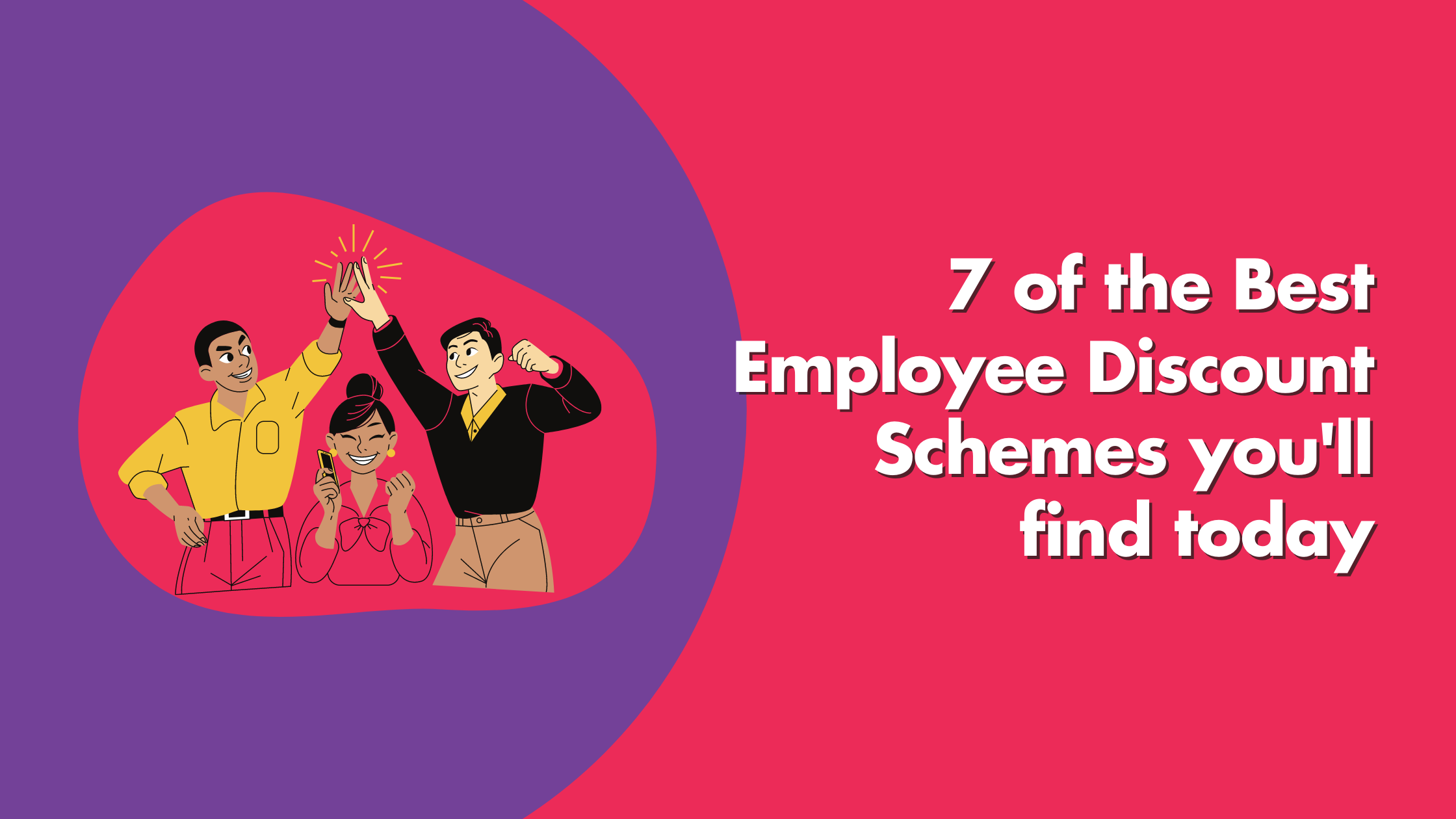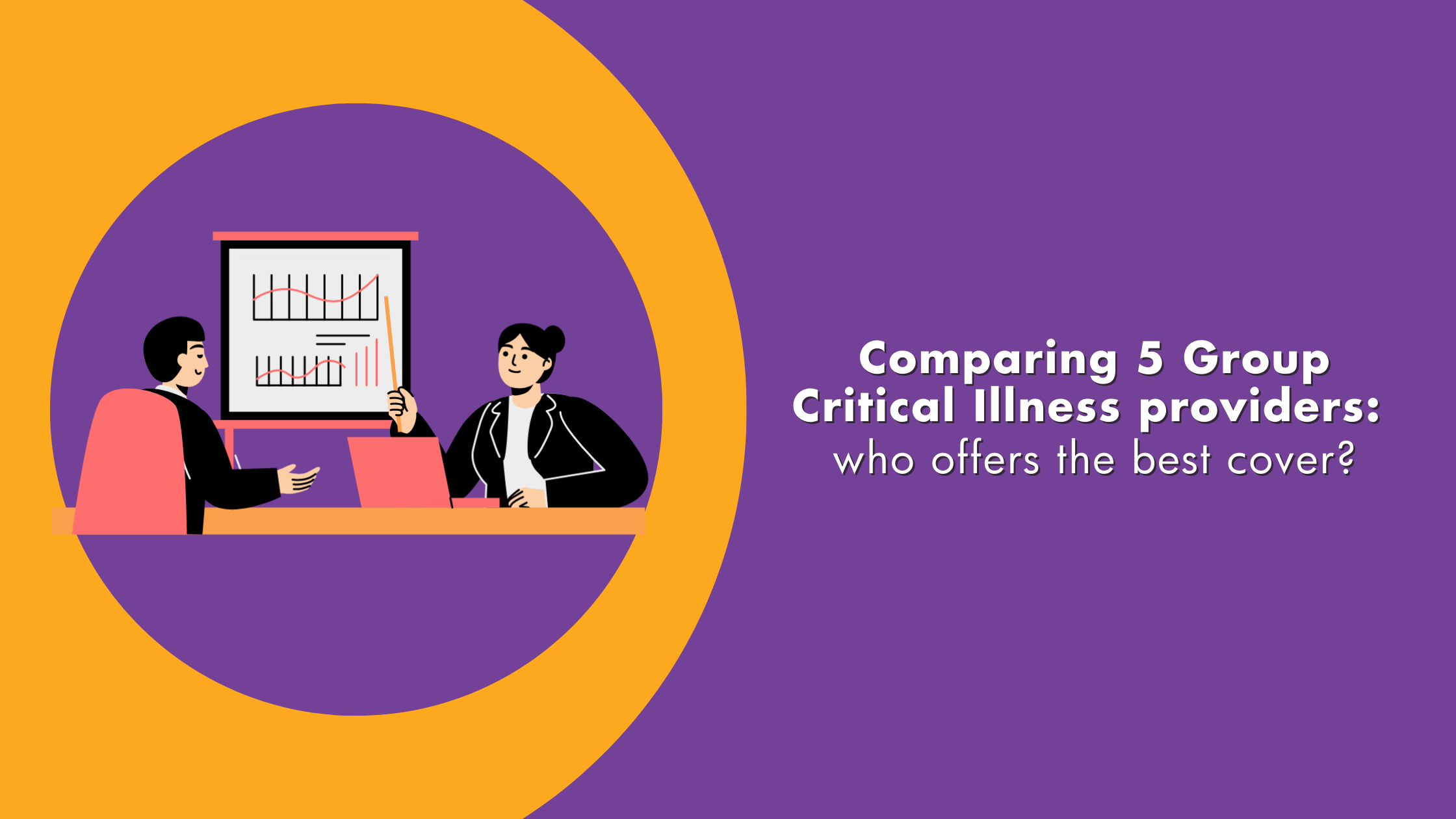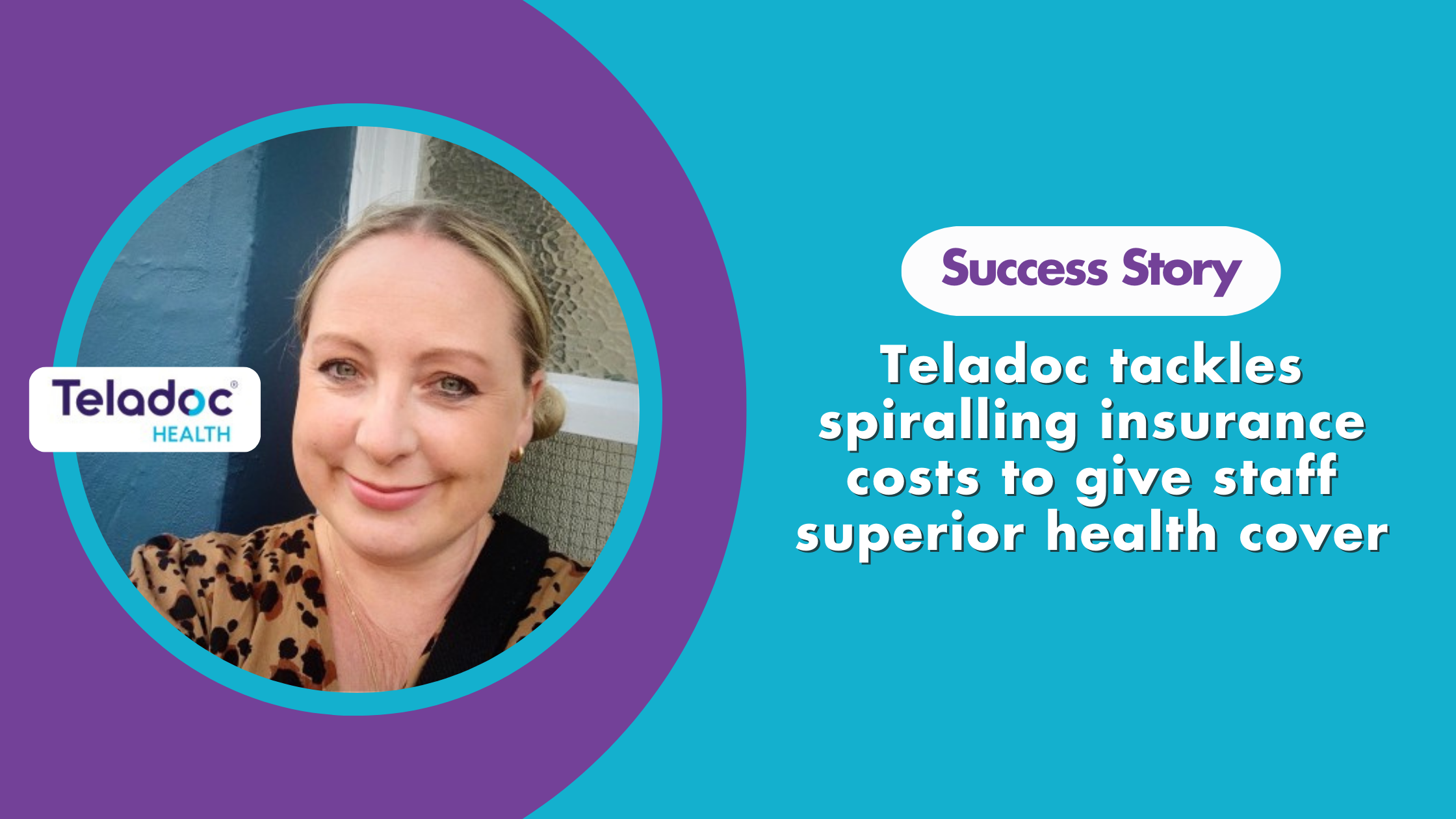Yes, giving employee benefits to your staff is a kind gesture, but what is a Benefit in Kind?
You’ll often see the term Benefit in Kind used in two slightly different contexts.
Sometimes it’s used to describe any benefit provided by an employer, but more commonly it refers to a specific category of taxable non-cash employee benefits.
For the sakes of this article, we will look more closely at the definition related to tax. HMRC defines a Benefit in Kind as “goods and services provided to an employee for free or at greatly reduced costs.”
In this blog, we delve deeper into its meaning and find out how it affects the tax status of different employee benefits.
Note: this article is intended to help you understand the general concept of Benefits in Kind – it is not intended as financial advice. Please consult a tax expert should you need professional tax guidance.
The Benefit in Kind explained
A Benefit in Kind is a non-cash product or service that an employer gives to their staff or directors on top of their salary.
Think of it like this: if you give your staff private health insurance, a company car, or even a gym membership; these things would all cost the employee if they wanted to buy them personally.
In the eyes of HMRC, they might be seen as part of your employees’ income, even though they’re not seeing the pounds going directly into their bank account.
It can be a double-edged sword. For example, businesses might be able get tax relief in return for their generosity, yet staff might have to pay tax on the value of the benefit they receive. It all depends on the nature of the employee benefit being offered.
Need help piecing together an employee benefits plan? Get personalised quotes from our friendly award-winning advisors by contacting hello@hoorayinsurance.co.uk or .
Are they taxable?
Because Benefits in Kind have a financial value, most of them are either taxable, or tax deductible, and need to be reported to HMRC. As an employer, you will usually need to report them through an annual P11D form. How it’s taxed depends on the type of benefit and how much it’s worth.
Some benefits, like company cars, can trigger a higher tax bill, especially if the car has high carbon emissions. Others, like health-related benefits, are often taxed more lightly.
There are also a few exceptions where no tax is due, such as work-related training or certain counselling services provided through Employee Assistance Programmes.
Let’s look at some common employee benefits related to health and financial protection and how they are treated from a tax perspective:
Business Health Insurance:
- For the employer: If you buy health insurance for employees through your limited company, it will be eligible for corporation tax relief. (Even unincorporated businesses can get tax relief). But you may need to pay Class 1A National Insurance on the value of the benefit.
- For the employee: As it’s considered a Benefit in Kind, your staff will have to pay income tax on it via payroll. If the employee contributes to the cost of the medical plan, then that amount is deducted from the taxable total (i.e. reduces the employees tax liability).
Group Life Insurance
- For the employer: It’s a tax-efficient benefit as the premiums paid by the company can be used to reduce their corporation tax bill
- For the employee: It’s generally not considered a taxable benefit, and so employees do not have to pay tax on the value of the policy – unlike with health insurance
- Life insurance payouts: Because life insurance is usually arranged via a trust, it doesn’t attract inheritance tax – therefore it should be a tax-free payment.
Group Critical Illness cover
- For the employer: Like life cover, Group CI premiums paid by the business can be used to deduct from their corporation tax bill.
- For the employee: Employees usually pay tax on the premiums paid by the employer as it’s considered a benefit-in-kind.
- Critical Illness policy payouts: These are paid tax-free to beneficiaries.
Group Health Cash Plans
- For the employer: Cash plans are also tax deductible for businesses which means the cost of the plan can be deducted against corporation tax. However, they may attract Class 1A National Insurance.
- For the employee: Employees are taxed on the value of the benefit.
Group Income Protection
- For the employer: Income Protection is a tax-deductible expense if the company covers the cost in full.
- For the employee: It usually only becomes a taxable benefit if the employee chooses to boost their cover by giving up part of their salary via salary sacrifice or Optional Remuneration Arrangements (OpRA).
- Income Protection payout: The income paid to the employee will usually be taxed as earnings via PAYE in the normal way.
Employee Assistance Programmes (EAPs)
The tax implications of EAPs are rather complicated…
- For the employer: EAPs are usually a tax-deductible expense offset against corporation tax. However, it may attract Class 1A National Insurance if the EAP also includes medical treatment, or is exclusive to a small set of employees and provides non-welfare services.
- For the employee: It can be a tax-free benefit if the services fall under HMRC’s definition of welfare counselling. However, as for employers, there are caveats. Firstly, it usually must be made available to all employees – not just a small group, such as senior management. Secondly, if the EAP is extended to friends and family, it must be restricted to issues which affect the employee too, such as marriage counselling – otherwise it could be considered taxable.
Make your investment count
As you can see, most of the examples we’ve used above can achieve tax savings for businesses, while requiring a little more tax from employees (though still a huge saving on what they’d have to pay if they bought these policies themselves!).
But how do you ensure your investment in employee benefits achieves real value for business and employee alike?
Really, it comes down to getting employee benefits at the best price, with the right coverage terms – and ensuring that the policies don’t add to your workload.
A good start is to speak to an employee benefits broker, like Hooray Health & Protection. We can review any policies you currently have in place, and compare price points from all insurers to ensure you’re getting the best deal. We’ll also manage the policies for you, taking on all the admin and assisting with claims if needed.
The best part? Our service is provided free of charge and you can get a no-obligation chat with one of our friendly advisors to find out what’s possible.
Contact us at hello@hoorayinsurance.co.uk or call 01273 222805.









![_HPA24 Advice Firm of the Year [YELLOW] _HPA24 Advice Firm of the Year [YELLOW]](https://hoorayinsurance.co.uk/wp-content/uploads/elementor/thumbs/HPA24-Advice-Firm-of-the-Year-YELLOW-qwfw5zs3ef19fjq6cnwf697rj9gwqbf8o6443qptg0.png)
![_HPA24 Best Small Health Insurance Advice Firm [YELLOW] _HPA24 Best Small Health Insurance Advice Firm [YELLOW]](https://hoorayinsurance.co.uk/wp-content/uploads/elementor/thumbs/HPA24-Best-Small-Health-Insurance-Advice-Firm-YELLOW-qwfw5yu97kzz3xrji5hslrgaxvljimbic1gmmgr7m8.png)
![_HPA24 Best Sales & Retention Advice Team [YELLOW] _HPA24 Best Sales & Retention Advice Team [YELLOW]](https://hoorayinsurance.co.uk/wp-content/uploads/elementor/thumbs/HPA24-Best-Sales-Retention-Advice-Team-YELLOW-qwfw5yu97kzz3xrji5hslrgaxvljimbic1gmmgr7m8.png)
![_HPA24 Best Small Protection Advice Firm [YELLOW] _HPA24 Best Small Protection Advice Firm [YELLOW]](https://hoorayinsurance.co.uk/wp-content/uploads/elementor/thumbs/HPA24-Best-Small-Protection-Advice-Firm-YELLOW-qwfw5zs3ef19fjq6cnwf697rj9gwqbf8o6443qptg0.png)